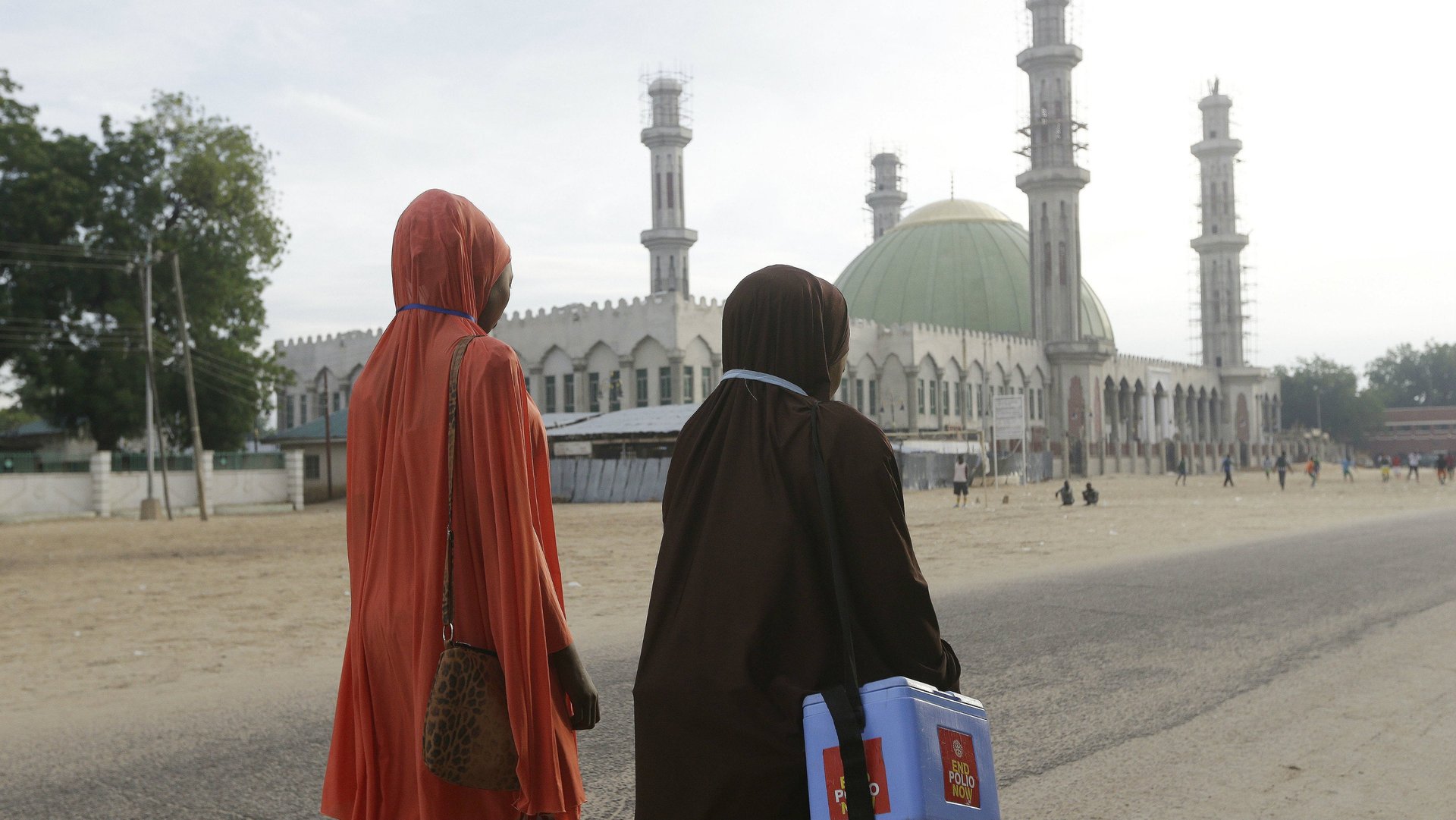One of Nigeria’s foremost Islamic leaders wants to turn northern mosques into schools
Over the last decade, northern Nigeria has trailed the rest of the country in educational standards and literacy rates. With that gap widening, Sanusi Lamido Sanusi, the Emir of Kano, and one of the region’s leading monarchs and foremost Islamic rulers, is offering a radical solution to fix the problem: converting mosques to schools.


Over the last decade, northern Nigeria has trailed the rest of the country in educational standards and literacy rates. With that gap widening, Sanusi Lamido Sanusi, the Emir of Kano, and one of the region’s leading monarchs and foremost Islamic rulers, is offering a radical solution to fix the problem: converting mosques to schools.
The solution, Sanusi says, was inspired by a visit to Morocco where he saw mosques used as classrooms for university lectures. The move, he argues, will help state governments save money at a time when they’re mostly cash-strapped given Nigeria’s difficult economic headwinds.
“When you convert these mosques to institutions of learning in your domain, you simply bring education to the door steps of citizens at less cost,” said Sanusi, who is a former governor of the Central Bank of Nigeria.
While Sanusi’s idea seems sensible and potentially cost-effective, it will probably face some opposition in a region where religious conservatism takes precedence over most things, including education. His status as one of the north’s foremost spiritual leaders means his idea will spark conversations but doesn’t guarantee major change.
A lack of schools has been partly blamed for the rise of Islamic terrorist group Boko Haram in Nigeria’s north east. The group’s primary position is steadfast against what it describes as Western education and often exploits young uneducated people to join its ranks.
Some of the biggest victims of dominant cultural and religious beliefs in the region are women. For example, with education deemed an unnecessary luxury for women, a majority of women in most northeastern states are illiterate.
Illiteracy is not the only offshoot of a lack of education among women in the region though. According to UNICEF, 43% of girls in Nigeria are married off as child brides before their 18th birthday with northwestern Nigeria accounting for 76% of such instances. Recognizing the need to vastly improve education of girl children, Sanusi has also advocated for banning child marriages and increased spending on educating women in the region.